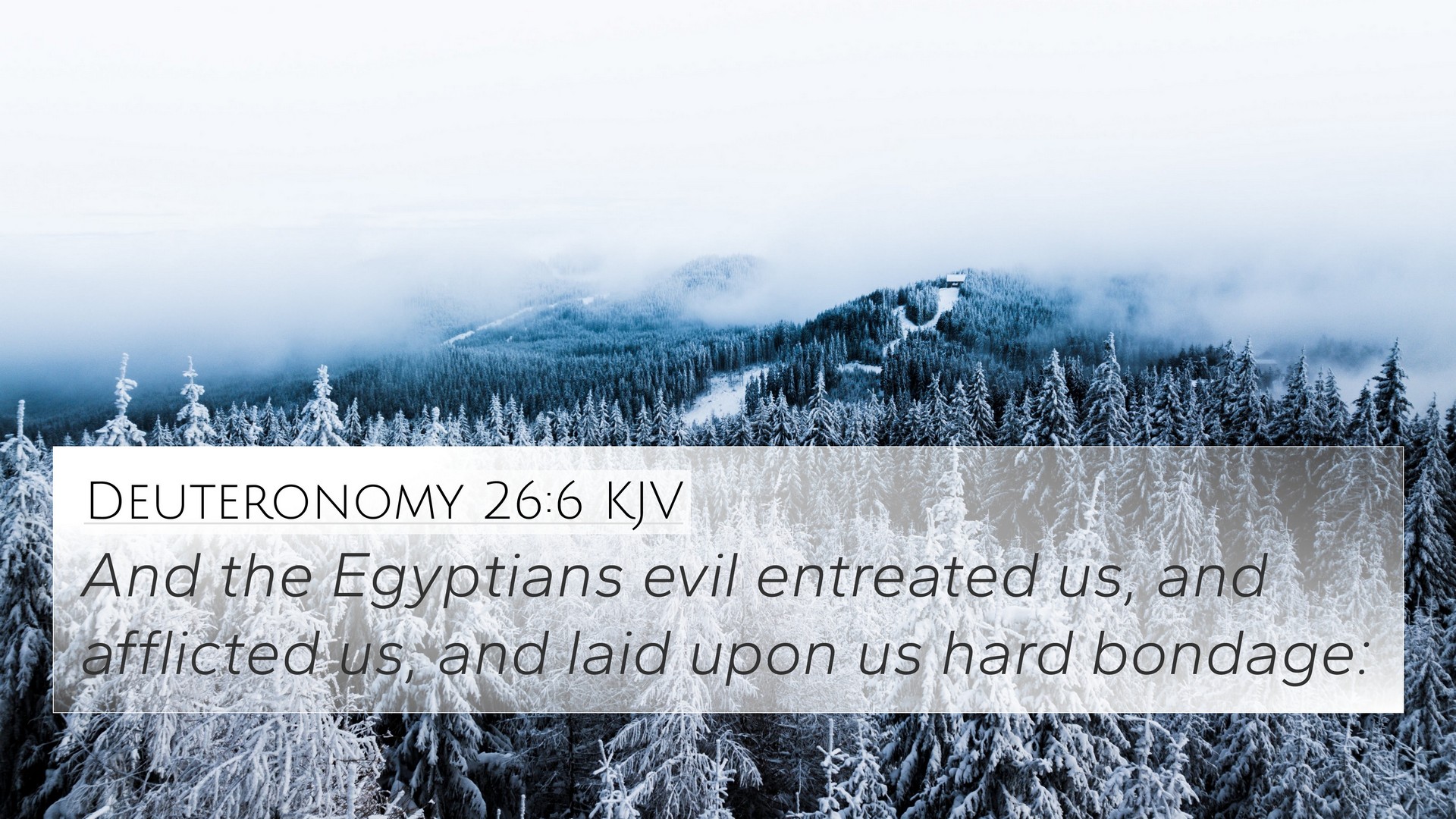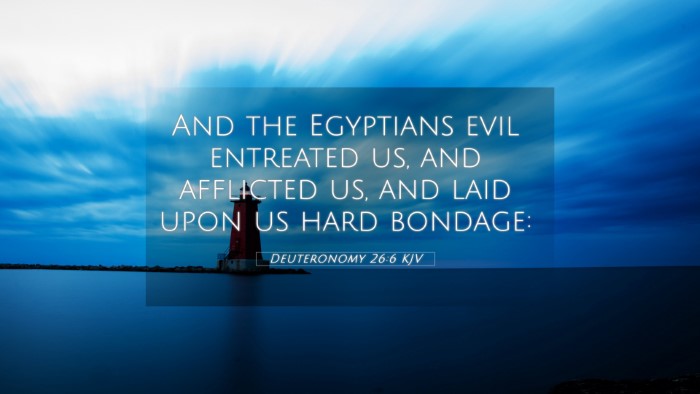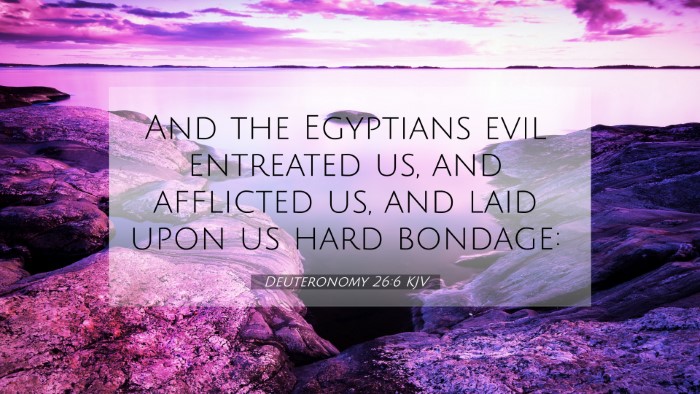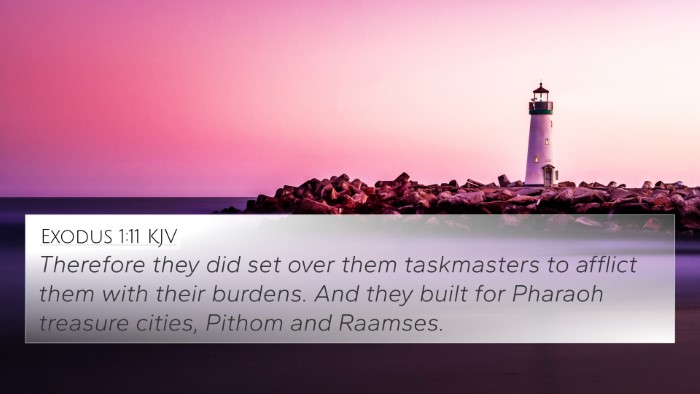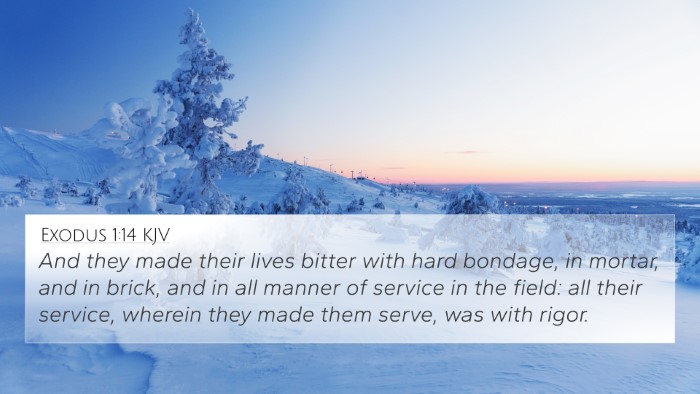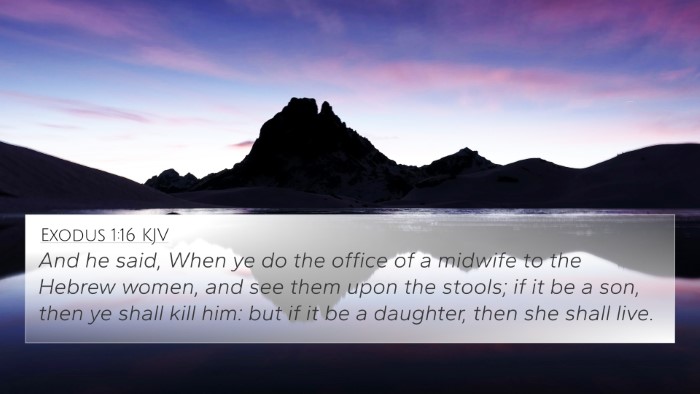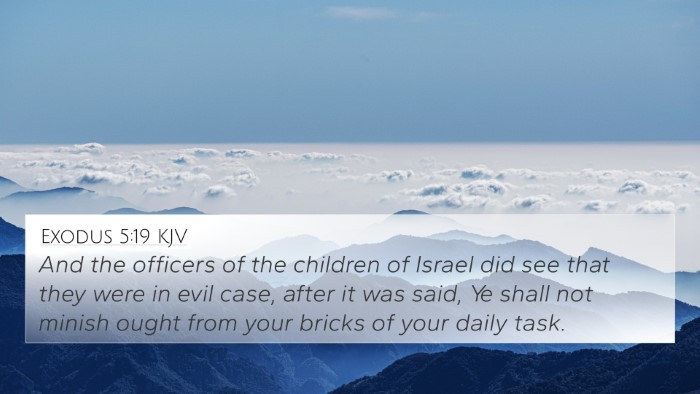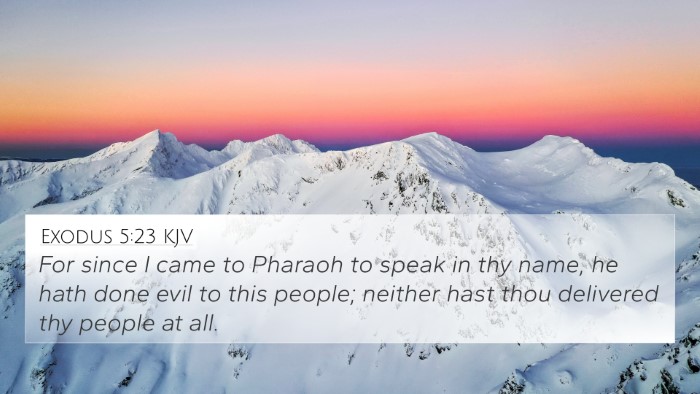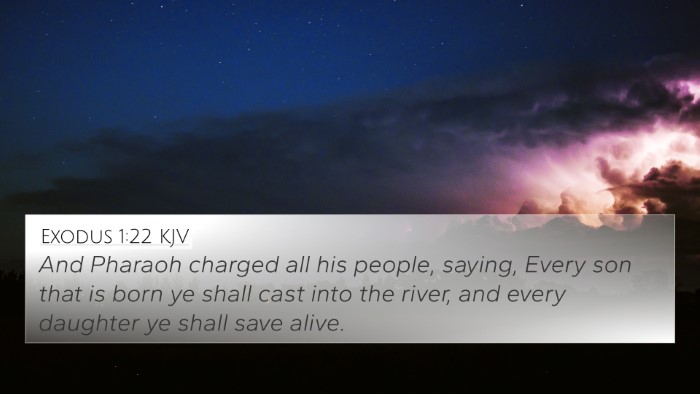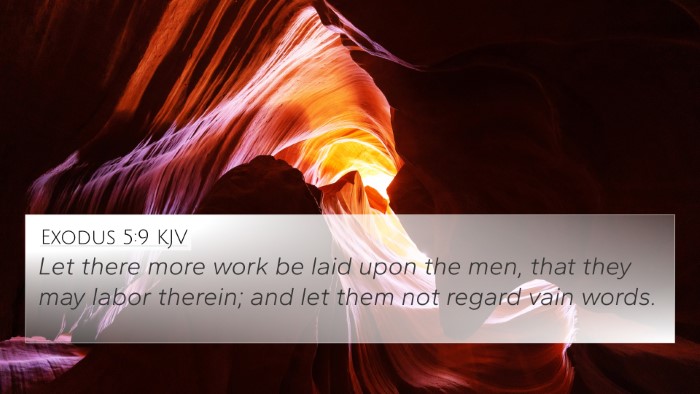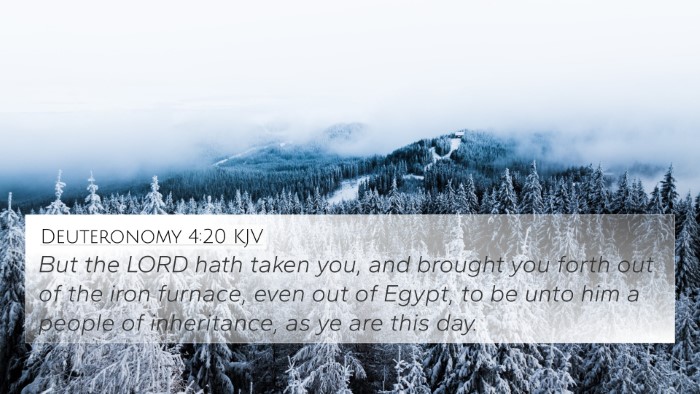Understanding Deuteronomy 26:6
Deuteronomy 26:6 states: "And the Egyptians evil entreated us, and afflicted us, and laid upon us hard bondage." This verse highlights a significant period in the history of Israel, focusing on the oppression the Israelites faced in Egypt. In this summary, we delve into the insights provided by various public domain commentaries to unpack the meaning of this verse.
Context and Background
As part of Moses' farewell address to the Israelites, Deuteronomy serves as a reminder of their journey and hardships. This specific verse reflects the historical oppression endured during their time in Egypt, setting the stage for God's deliverance and the covenant relationship established thereafter.
Commentary Insights
-
Matthew Henry:
Henry emphasizes the suffering and oppression the Israelites faced. He notes that God's people often experience trials, which serve as a precursor to redemption. He connects their suffering in Egypt to the greater narrative of salvation and God's faithful deliverance.
-
Albert Barnes:
Barnes provides a detailed analysis of the term "evil entreated," indicating that it captures the severity and cruelty of the Egyptians towards the Israelites. He also draws attention to the use of "hard bondage," reinforcing the idea that this oppression was not just physical but also psychological, affecting the spirit of the people.
-
Adam Clarke:
Clarke discusses the implications of this verse regarding the Israelites' identity. He suggests that remembering their past suffering is crucial for understanding the grace and mercy of God upon their deliverance. Clarke posits that the remembrance of pain enhances gratitude for freedom and covenantal blessings.
Thematic Connections
This verse leads us to explore several important themes:
- Oppression and Deliverance: The suffering in Egypt serves as a backdrop for God’s saving grace, a theme prevalent throughout the Bible.
- Covenant Relationship: The remembrance of suffering emphasizes the relationship between God and His people, marking a contrast between bondage and covenant fulfillment.
- Identity through Trials: The collective memory of hardship shapes the Israelites' identity and reliance on God's promises.
Cross References
To further understand Deuteronomy 26:6, we can look at several related scriptures:
- Exodus 1:13-14: "And the Egyptians made the children of Israel to serve with rigor."
- Exodus 3:7-10: "And the LORD said, I have surely seen the affliction of my people which are in Egypt."
- Psalms 105:25: "He turned their heart to hate his people, to deal subtilly with his servants."
- Galatians 4:24-26: This passage contrasts the bondage of the Law with the freedom found in Christ, drawing parallels to Israel's liberation from Egypt.
- Romans 8:18: "For I reckon that the sufferings of this present time are not worthy to be compared with the glory which shall be revealed in us."
- 1 Peter 5:10: "But the God of all grace, who hath called us unto his eternal glory by Christ Jesus, after that ye have suffered a while, make you perfect, stablish, strengthen, settle you."
- Isaiah 43:2: "When thou passest through the waters, I will be with thee; and through the rivers, they shall not overflow thee."
Integrating the Message
The message of Deuteronomy 26:6 is central to the understanding of Israel's narrative and highlights the importance of remembrance and thanksgiving. By reflecting on their past struggles, the Israelites are called to embrace their identity as God's chosen people. This identity is grounded in the recognition of their suffering and the resulting divine deliverance.
Conclusion
The insights drawn from Deuteronomy 26:6, along with the analysis provided by historical commentaries, reveal a deeper understanding of suffering, divine deliverance, and the importance of Yahweh's covenant with His people. By employing tools for Bible cross-referencing and engaging in comparative Bible verse analysis, readers can enrich their understanding of how this verse interconnects with other scriptural themes.
